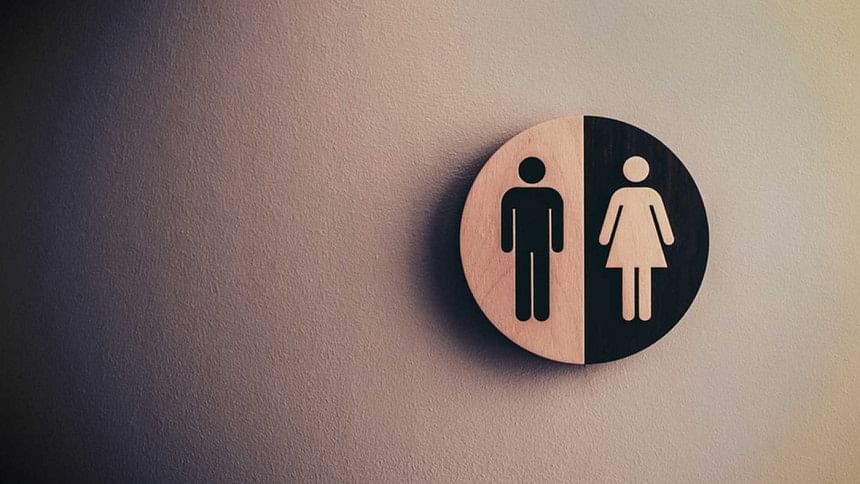Girl, boy, person—let everyone blossom

"Is it a boy or a girl?"
Funny how this question often preempts concern about the health of mother and baby. Why are we so obsessed with a baby's gender? From the baby's earliest days, we seek to reinforce gender stereotypes that say nothing about the actual biological differences between males and females, but that burden the tiniest baby with expectations that can hamper its hope for a positive future. Adults constantly tell us what it means to be a boy or girl and ensure that we conform to gender stereotypes. But those stereotypes are not only annoying but genuinely harmful.
We tell girls to be gentle, soft, and to speak quietly. We encourage boys to be loud and aggressive, but not to cry. We teach girls that housework is their responsibility and boys to shun it as unmanly.
As children grow into youth, they often internalise these stereotyped gender roles, perhaps avoiding activities that they might otherwise enjoy or excel at. Boys who have been taught to suppress their feelings and to resolve disputes through violence may grow into abusive adults. Women bear full burden for household responsibilities even when they have a paid job, while fathers often have little connection with their children.
I worry when I meet very gentle, soft-spoken women. Will they be able to defend themselves if they are in an abusive situation with a boss or husband? If they have good ideas, will they be able to express themselves firmly and confidently enough that others will pay attention, rather than simply talk over them? I also worry when boys cannot express their emotions or know no way of resolving conflict other than yelling and lashing out.
One young woman I met is one of a family of girls. Her father, desperate for a boy, gave her a boy's name, and for many years she was encouraged to behave in stereotypically masculine ways. But then when she reached late adolescence, her family attempted to rein in those tendencies and push her to be a conventional girl. Why does she wear her hair short? Why is she so assertive? Rather than celebrate and encourage her, her family tries to mould her into something different, something alien to her essence. She is a continual disappointment to her family both for not being a boy and for not being sufficiently feminine.
I see it too in the struggles of some children. Boys who wish to play at girls' games, or who are gentle. Girls who want to play sports or have learned to be assertive (which, when girls do it, is known as being aggressive). Can a young woman wear her hair long and pursue a degree in engineering? Can a young man love dance and be attracted to girls? The constant pulls to fit the societally constructed roles for females and males can be exhausting and degrading. What about letting people just be who they are?
Part of what makes our world so interesting is the great variety in human behaviour. People do not always conform to expectations. They splash out in new fields and new ways, setting new trends or simply joyously or stubbornly rebelling against the norms. They expand the meaning of being male or female, or even of being human. How boring the world would be if we all just mindlessly did as we are told and never challenged authority!
Also, with so many problems that we need to address—heck, just flip through the pages of today's newspaper and you'll see an almost endless array—why are we wasting time with trying to force people to be what they're not? Surely people would have more creativity and energy to do good in the world if they were not spending so much time and effort trying to fit themselves into a mould.
It can be hard to accept the ways in which we contribute to the furthering of harmful gender stereotypes. Perhaps it is time to engage in some introspection: how often do we encourage young girls to be pretty and gentle, and boys to be aggressive? Could we do better by the young people around us? Sometimes it only takes one or two people encouraging a child or youth to be comfortable and confident as they are, regardless of whether they are male or female, for the young person to bloom. And if enough of us fight against gender stereotypes, real change is possible.
Debra Efroymson is Executive Director of the Institute of Wellbeing.

 For all latest news, follow The Daily Star's Google News channel.
For all latest news, follow The Daily Star's Google News channel. 



Comments